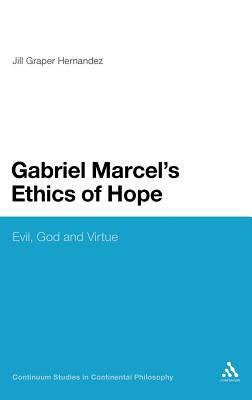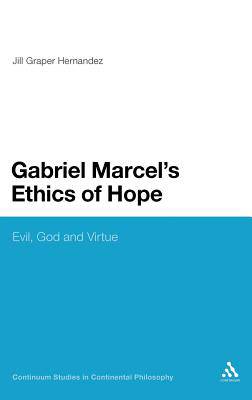
Bedankt voor het vertrouwen het afgelopen jaar! Om jou te bedanken bieden we GRATIS verzending (in België) aan op alles gedurende de hele maand januari.
- Afhalen na 1 uur in een winkel met voorraad
- In januari gratis thuislevering in België
- Ruim aanbod met 7 miljoen producten
Bedankt voor het vertrouwen het afgelopen jaar! Om jou te bedanken bieden we GRATIS verzending (in België) aan op alles gedurende de hele maand januari.
- Afhalen na 1 uur in een winkel met voorraad
- In januari gratis thuislevering in België
- Ruim aanbod met 7 miljoen producten
Zoeken
€ 339,45
+ 678 punten
Uitvoering
Omschrijving
The idea of hope has received significant attention in the political sphere recently. But is hope just wishful thinking, or can it be something more than a political catch-phrase? This book argues that hope can be understood existentially, or on the basis of what it means to be human. Under this conception of hope, given to us by Gabriel Marcel, hope is not optimism, but the creation of ways for us to flourish. War, poverty and an absolute reliance on technology are real-life evils that can suffocate hope. Marcels thought provides a way to overcome these negative experiences. An ethics of hope can function as an alternative to isolation, dread, and anguish offered by most existentialists. This book presents Marcels existentialism as a convincing, relevant moral theory; founded on the creation of hope, interwoven with the individuals response to the death of God. Jill Hernandez argues that todays reader of Marcel can resonate with his belief that the experience of pain can be transcended through a philosophy of hope and an escape from materialism.
Specificaties
Betrokkenen
- Auteur(s):
- Uitgeverij:
Inhoud
- Aantal bladzijden:
- 176
- Taal:
- Engels
- Reeks:
- Reeksnummer:
- nr. 2
Eigenschappen
- Productcode (EAN):
- 9781441196279
- Verschijningsdatum:
- 15/12/2011
- Uitvoering:
- Hardcover
- Formaat:
- Genaaid
- Afmetingen:
- 156 mm x 234 mm
- Gewicht:
- 426 g

Alleen bij Standaard Boekhandel
+ 678 punten op je klantenkaart van Standaard Boekhandel
Beoordelingen
We publiceren alleen reviews die voldoen aan de voorwaarden voor reviews. Bekijk onze voorwaarden voor reviews.









